The best gravel wheels are light, stiff and durable. They’re built to withstand the rough and tumble of riding on mixed surfaces in all weathers, and they’re designed to work with gravel tyres, which are wider than conventional road tyres, but skinnier than mainstream mountain bike rubber.
We’ll be the first to admit there’s really no such thing as a gravel wheelset per se. You can fit your gravel bike with road wheels or mountain bike wheels if you have compatible parts.
But many wheel makers now offer products for the gravel market and, in this list, we've rounded up the best gravel bike wheels you can buy in 2025, as rated and reviewed by our test team.
We have also included our buyer’s guide, which details what to look out for when buying a new set of gravel hoops as well as an insight into how we test gravel wheels.
Editor's note: This list was updated on 16 May 2025 with our recent top-scoring gravel wheel reviews, including Hunt's Limitless 40 Gravel Aero.
Best gravel wheels in 2025
Campagnolo Shamal C21 DB 2WF XDR Carbon
SQUIRREL_TEXT_13085096
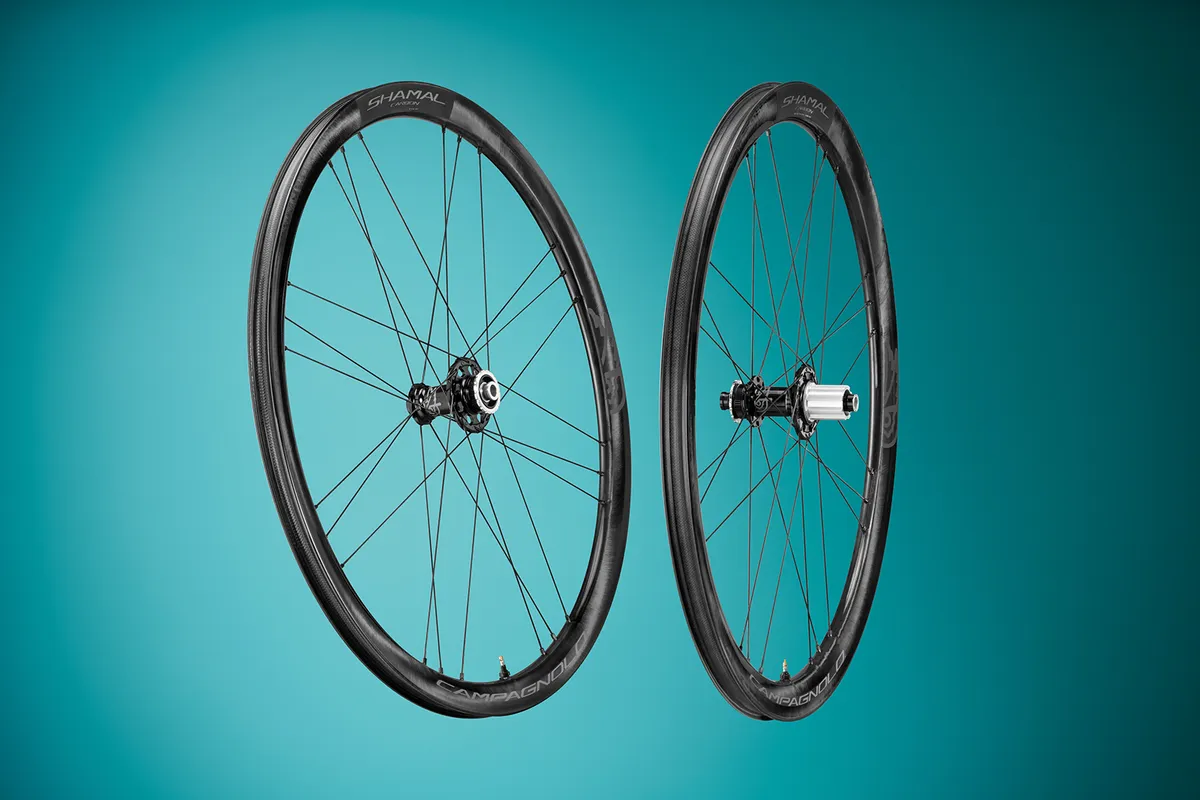
- Price: £1,160 / $1,689 / €1,299 as tested
- Pros: Comfortable; easy tubeless setup; good value
- Cons: No 650b options
Campagnolo’s Shamal wheelset is designed specifically for gravel, with a 21mm internal-width carbon rim with a sealed bed that eliminates the need for rim tape. The rims are different heights front and rear, 35mm versus 40mm, which Campag says leads to nimble steering, coupled with rigidity at the rear to put the power down.
The hubs have cup-and-cone bearings for easy serviceability. As well as an N3W freehub to fit Campag’s Ekar groupset you can also specify Shimano/SRAM or XDR options. Spokes are laced in the unique G3 clustered pattern.
Spec
Wheel size: 700c | Rim material: Carbon | Weight: 1,585g (tested) | Internal width: 21mm
SQUIRREL_13085096
DT Swiss GRC 1400 Dicut 30
SQUIRREL_TEXT_13196829

- £1,949.98 / $2,399.80 / €2,049.80 as tested
- Pros: Superb stability; industry-leading hubs; lightweight; great build quality
- Cons: Internal rim not as progressive as some; truing requires more steps
The GRC 1400 Dicut 30 wheels are hard to overlook if you're looking for an all-round lightweight carbon gravel wheelset.
We were impressed by their superb build quality, with the proven 240 hubs feeling robust and offering easy freehub transfer.
The wheels perform well across a broad spectrum of environments, impressing us with their sprightly acceleration and composure on rough descents.
The 24mm internal rim width is up to date, although some may want slightly wider, and the internal spokes will make truing more laborious, with the rim tape needing to be removed to access them.
- Read more: DT Swiss GRC 1400 Dicut 30 review
Spec
Wheel size: 700c | Rim material: Carbon | Weight: 1,487g (tested) | Internal width: 24mm
SQUIRREL_13196829
Campagnolo Levante Gravel
SQUIRREL_TEXT_13082880
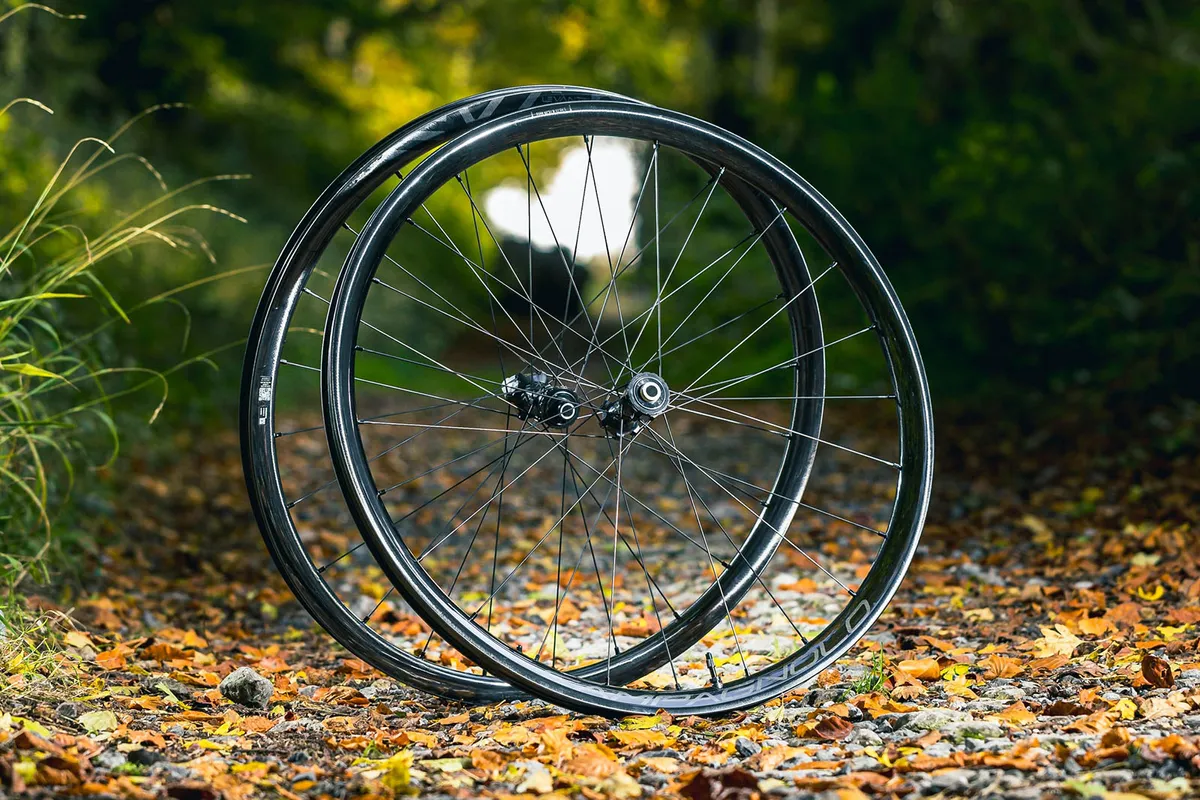
- Price: £1,350 / $1,755 / €1,620 / AU$2,362 as tested
- Pros: Comfortable; easy to live with; no tape needed for tubeless setup
- Cons: Quirky freehub
While Campagnolo’s Shamal wheels were ‘gravel-compatible’, the Levante is its first dedicated gravel wheelset, upholding the brand’s reputation for quality and performance.
The wheelset utilises Campagnolo’s tried-and-tested technology, such as its ultra-light carbon technology and smoother inner rims, so you don’t need rim tape to run the wheels tubeless.
On trails and byways, the Levante delivered a smooth ride and a floaty quality, which helped our tester retain their chosen line over tricky terrain.
Minus some pawl jams after freewheeling down rough ground, the Campagnolo Levante proved swift, smooth and easy to live with.
- Read more: Campagnolo Levante review
Spec
Wheel size: 700c | Rim material: Carbon | Weight: 1,513g (including valves) | Internal rim width: 24.5mm
SQUIRREL_13082880
Campagnolo Zonda GT
SQUIRREL_TEXT_13196826

- £614.99 / $749 / €689.95 / AU$1,179 as tested
- Pros: Great build quality; sprightly ride feel; no tape needed; elegant hubs
- Cons: Could be lighter; truing not the easiest
While the Zonda GT isn't the lightest gravel wheelset, their lively ride feel and outstanding build quality impressed us.
The wheels were solid and proved to be reliable during testing, although truing them poses more of a task than somem with the G3 lacing making for a significantly more laborious process than ordinary lacing.
No tape is needed when setting the wheels up tubeless and the hubs are very pretty on the eye.
- Read more: Campagnolo Zonda GT review
Spec
Wheel size: 700c | Rim material: Aluminium | Weight: 1,728g | Internal rim width: 23mm
SQUIRREL_13196826
FFWD Drift
SQUIRREL_TEXT_13083685
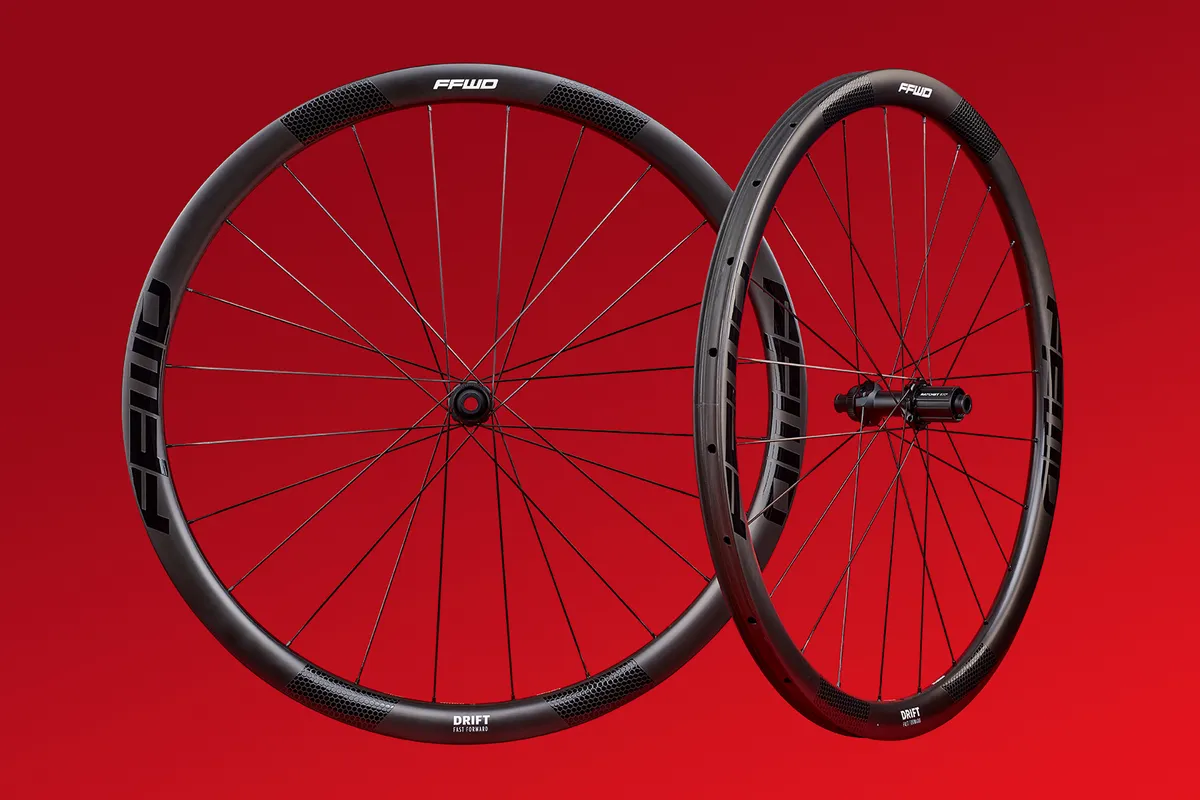
- Price: £1,500 / $1,699 / €1,399 as tested
- Pros: Decent build quality; good stiffness; fast-accelerating
- Cons: Fragile rim tape
The FFWD Drift wheelset’s rims are 36mm deep and 24mm wide with a hookless rim. At the centre are DT Swiss 240 EXP hubs, and they’re laced up with thicker-gauge DT aero spokes with brass nipples.
We had to replace the flimsy rim tape, which tore and leaked, but otherwise build and ride quality are first-rate. They roll light and feel tight.
- Read more: FFWD Drift wheelset review
Spec
Wheel size: 700c | Rim material: Carbon | Weight: 1,525g (tested) | Internal width: 24mm
SQUIRREL_13083685
Hunt Limitless 40 Gravel Aero

- £2,449 / $2,989 / €2,898 as tested
- Pros: Impressively stiff; lightweight; comfortable on an array of surfaces
- Cons: Pricey in this range-topping spec
The Hunt Limitless 40 Gravel Aero wheels are lightweight and responsive, feeling fast on a variety of surfaces.
While they proved stiff, it doesn't detract from their bump-smoothing comfort when on rougher sections of gravel.
They make for an excellent race wheel, and while the CeramicSpeed bearings are a nice luxury, opting for the lower budget option doesn't take too much away from their performance for an amateur rider.
- Read more: Hunt Limitless 40 Gravel Aero review
Spec
Wheel size: 700c | Rim material: Carbon | Weight: 1,378g | Internal rim width: 27mm (front), 26mm (rear)
Just Riding Along Monitor Carbon
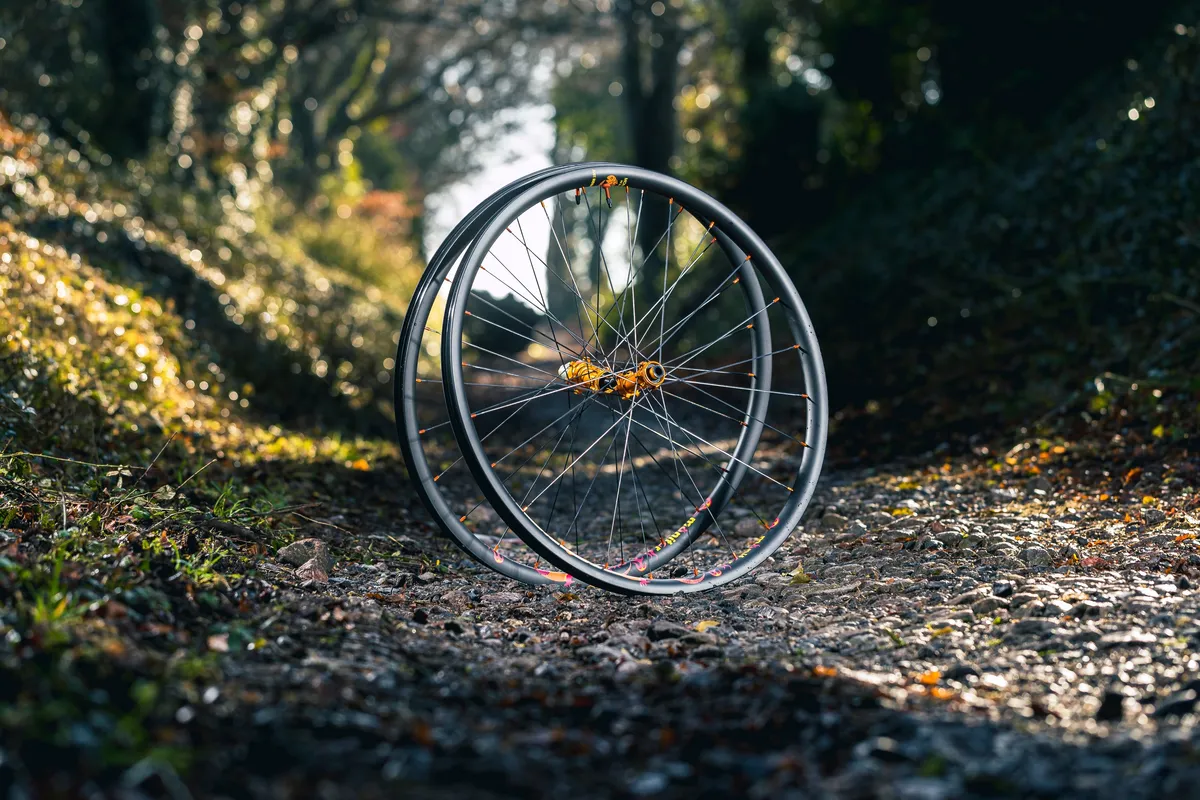
- Price: £890 as tested
- Pros: Good value; plenty of customisation; smooth, comfortable ride
- Cons: More involved hub maintenance
The Just Riding Along Monitor Carbon wheelset is a custom-built wheelset made in York, UK.
Our wheelset had 24 straight-pull spokes laced to 25mm-deep rims and arrived two weeks after we placed the order.
The ride is smooth and the wheelset absorbs most of the buzz and chatter of rocky trails.
It comes to life over particularly rough terrain, maintaining a smooth connection to the ground and minimising fatigue on longer rides. It manages to achieve this while still proving stiff enough for climbing.
You will need cone spanners to service the hub bearings, but this is not a deal breaker for a well-priced, customisable set of gravel wheels.
- Read more: Just Riding Along Monitor Carbon review
Spec
Wheel size: 700c | Rim material: Carbon | Weight: 1,346g | Internal rim width: 26.5mm
Zipp 303S
SQUIRREL_TEXT_13078505
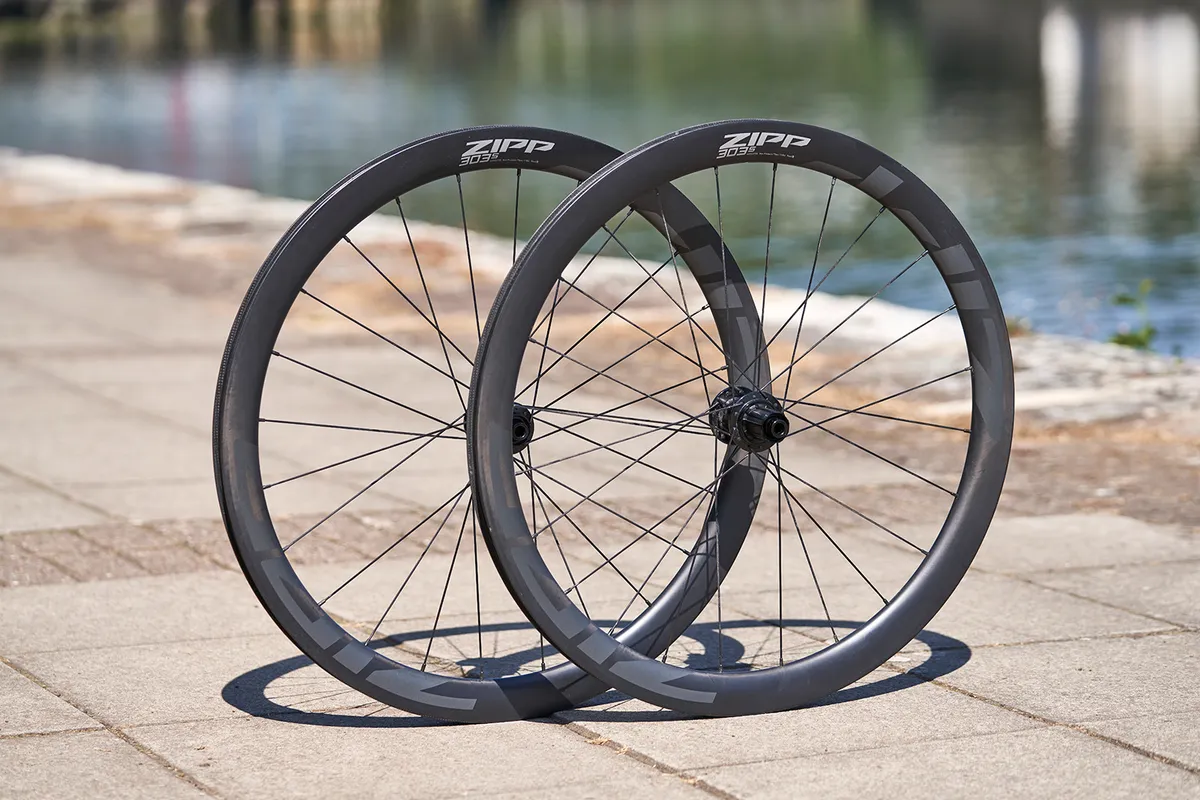
- Price: £1,031 / $1,346 / €1,230 / AU$1,860 as tested
- Pros: Simple design; great quality; easy to maintain
- Cons: Slightly harsh ride feel
While the Zipp 303S wheels are aimed squarely at those who want to go fast and are suitable for use on the road, the 22.7mm internal width and recommended low pressure make them a great choice for gravel racing.
The wheels are fairly light at 1,558g and they have a snappy and direct ride quality.
Zipp's choice of spokes and hubs makes the wheels easy to maintain.
They are a bit harsher than some other wheels, so these likely wouldn't be our choice for gravel riding on rougher terrain.
- Read more: Zipp 303s review
Spec
Wheel size: 700c | Rim material: carbon | Weight: 1,558g | Internal width: 22.7mm
SQUIRREL_13078505
How we test gravel wheelsets

We test gravel wheelsets on a variety of terrain, taking in rough singletrack, gravel roads and tarmac to see how the wheels hold up in the real world.
Our testers have reviewed hundreds of wheels in their time, so have a keen eye on what to look for in a good set of wheels.
Long test cycles filled with endurance gravel rides enable us to identify the pros and cons of a wheelset and simulate what ownership might be like.
Ultimately, our gravel wheel reviews are based on the following criteria:
- Feel – are they comfortable for long rides?
- Weight – how heavy are the wheels compared to their competitors?
- Durability – how often do the wheels need servicing? Do they hold up to the rigours of gravel riding?
- Engagement – how quickly does the freehub engage when you start to pedal?
- Brand claims – do the wheels deliver against what the brand states?
- Value for money – do the wheels represent a good deal, and how do they compare to the competition?
Why you can trust BikeRadar
BikeRadar has been an authority on bikes and cycling tech since its inception in 2007, delivering the world’s best riding advice.
We have experts testing all types of bikes, parts, clothing and accessories, from road, mountain and gravel bikes to commuting, bikepacking and electric bikes.
Our reviews are always editorially independent – with no exceptions. Our reviewers comprehensively test all products in the real world, always reflecting on performance, value and the wider market when delivering their verdicts and review ratings.
We have more than 15,000 product reviews available at your fingertips, as well as expert buying, maintenance, training, skills, health and fitness advice.
Our annual Bike of the Year test is an industry benchmark and the BikeRadar team consists of some of the most experienced riders and testers in the business.
Buyer’s guide to choosing your next gravel wheelset
Rim width
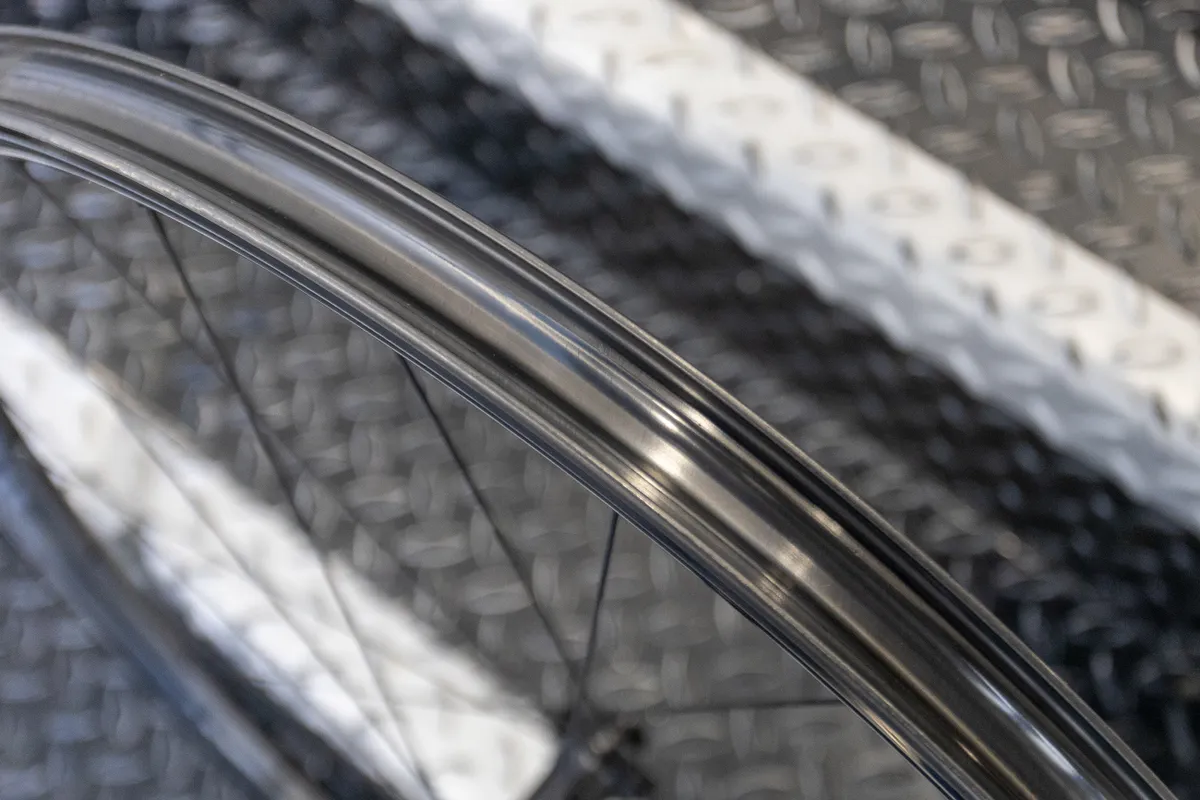
The ideal gravel rim is wider than a typical road one. The key number to look for is internal width, which relates directly to the range of tyre sizes you can fit.
Gravel riding means different things to different riders, but it typically involves running 28mm-wide tyres at the very, very minimum, and more commonly 35 to 50mm.
Unsurprisingly, wider rims work best with wider tyres, giving your tyres a better profile with more volume and less of a ‘lightbulb’ shape, which occurs when the tyre is significantly wider than the rim.
There’s no hard and fast rule, but if you’re shopping for new gravel wheels, we’d suggest looking at rims with an internal width of at least 20mm, and preferably a bit wider (rims designed for the road are typically around 15 to 19mm internal, although that’s been trending upwards in recent years).
Wheel size: 700c or 650b?
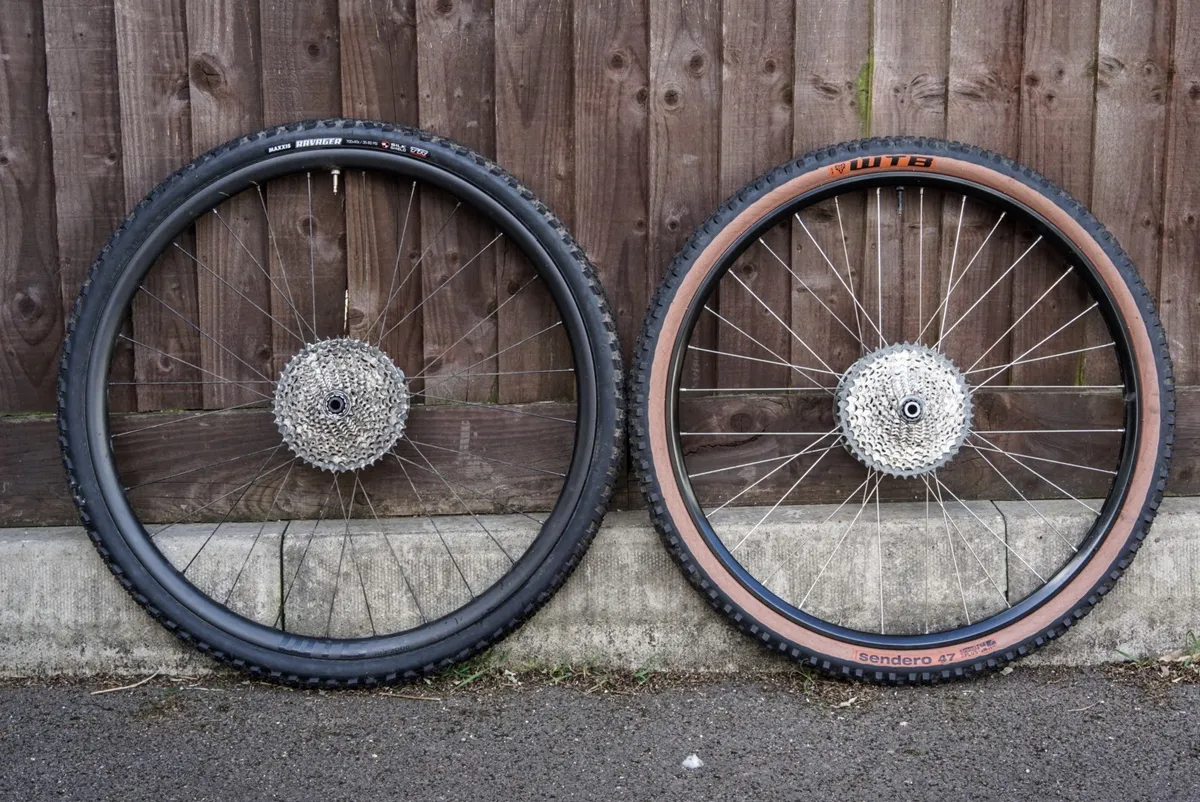
The vast majority of gravel bikes accept either 700c (standard road size, actual rim diameter equal to 29in mountain bike rim) or smaller 650b wheels (actual rim diameter equal to 27.5in mountain bike rim).
Many framesets are designed to accept both sizes, with the option to fit wider tyres if you opt for 650b. This works because the rolling diameter of a fat 650b tyre (e.g. 650b × 47) is similar to that of a 700c wheel fitted with a much narrower tyre (around 700 × 28 to 30mm, approximately).
Having said that, you can’t assume that both sizes will work. A frameset designed for 700c wheels may accommodate the diameter of chunky 650bs, but lack the clearance at the stays or fork for the width of the tyres.
It’s best to follow manufacturer recommendations here, to avoid costly disappointment.
Choosing between 650b or 700c largely comes down to personal preference but, if you’re unsure which way to go, think about what size tyres you’re most likely to want on your bike.
If your gravel riding is more like all road, you might want tyres in the sub-40mm range that will work well both on and off tarmac.
You’ll have more tyre options if you opt for 700c in this case and you’ll be able to go as narrow as 28mm for pure road riding (usually – so follow manufacturer recommendations here), or about as wide as your frame will take at the other end of the spectrum (few gravel frames will accept a tyre larger than 700 × 45mm).
If you want as much tyre volume as possible and your gravel riding sometimes resembles mountain biking, 650b makes a lot of sense.
A 650b×47mm tyre is balloon-like in its ride quality and some frames will let you go larger still, edging fully into mountain bike territory.
There are, however, very few 650b tyres under 38mm wide and the rims themselves tend not to be designed for narrower ones anyway, so do consider if you might want the option to go narrower for road riding in the future.
A very small minority of gravel/adventure/touring bikes, such as the Surly Long Haul Trucker Disc, are designed to take 26in tyres, i.e. the old standard for mountain bikes.
If you’re touring in parts of the world where 26in is still the de facto standard for adult bikes, this makes sense from a spares point of view.
Otherwise, there isn’t a compelling reason to favour 26in over the more mainstream sizes for gravel, and the latest gravel tyres are typically only available in 700c and/or 650b.
Tubeless tyre compatibility
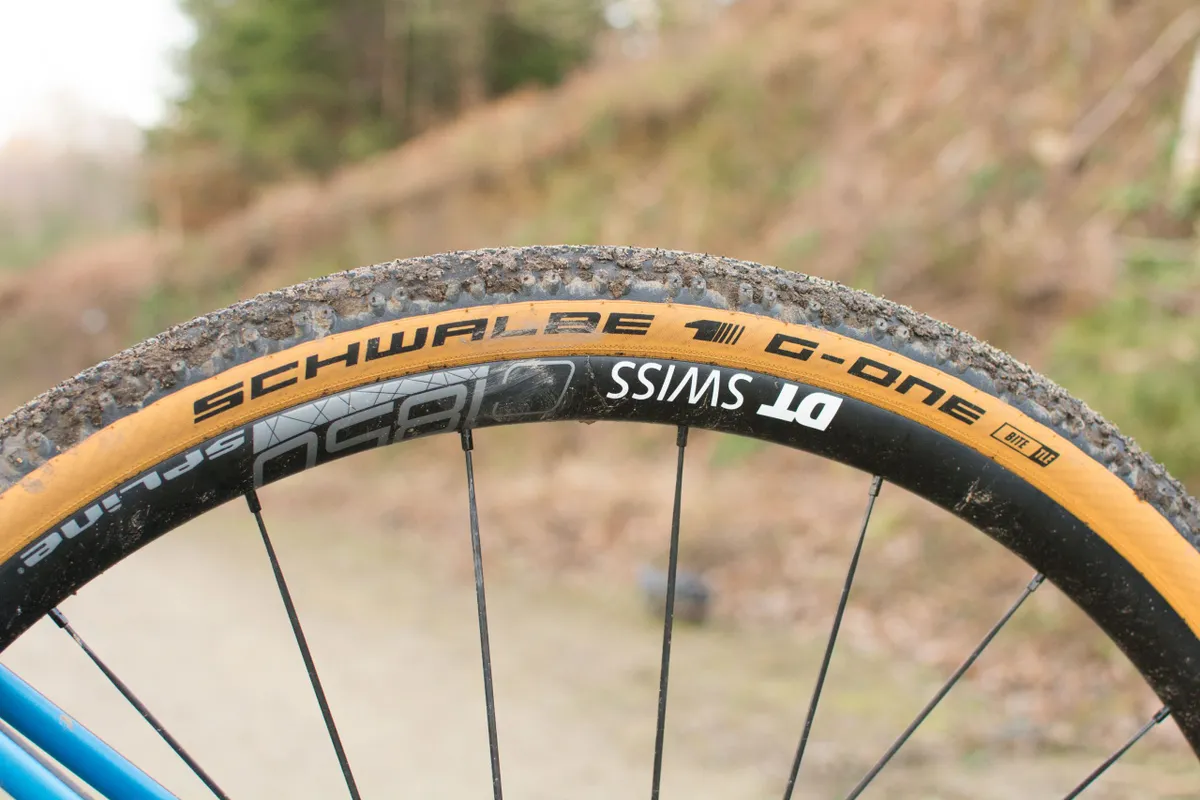
We're big fans of tubeless tyres because you can run them at lower pressures without the risk of pinch flats.
If you’re shopping for a new gravel wheelset, it makes sense to at least have the option of going tubeless, even if you don’t plan to do so initially.
Tubeless adds complexity at the setup stage, but offers real benefits when it comes to riding.
You can run lower pressures for grip and comfort without the risk of pinch flats (a particular concern if you’re riding relatively low-volume tyres on mixed surfaces) and sealant will take care of smaller punctures.
Many wheels will come with tubeless valves and tape (if needed) as standard, but if they don’t, you’ll need to budget for them as an extra.
Weight and durability
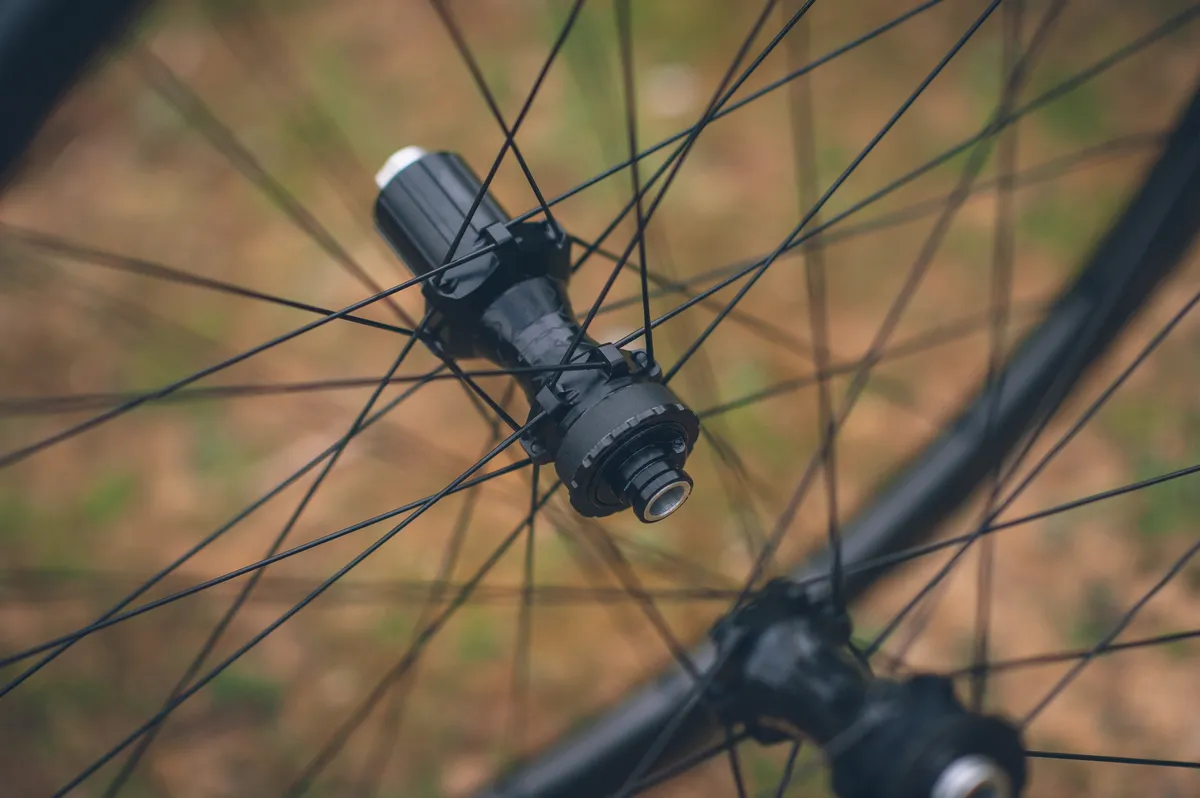
As well as having wider rims, wheels designed primarily for gravel are likely to be burlier than their road counterparts, although this is a generalisation.
They may have higher spoke counts and some manufacturers will opt for better-sealed hubs and/or larger bearings for durability. Super-lightweight road hubs are not the best choice if you’re planning to get your gravel bike muddy and wet.
As a result, dedicated gravel wheelsets tend to be heavier than road ones, although the difference may not be significant in the scheme of things.
Rim materials
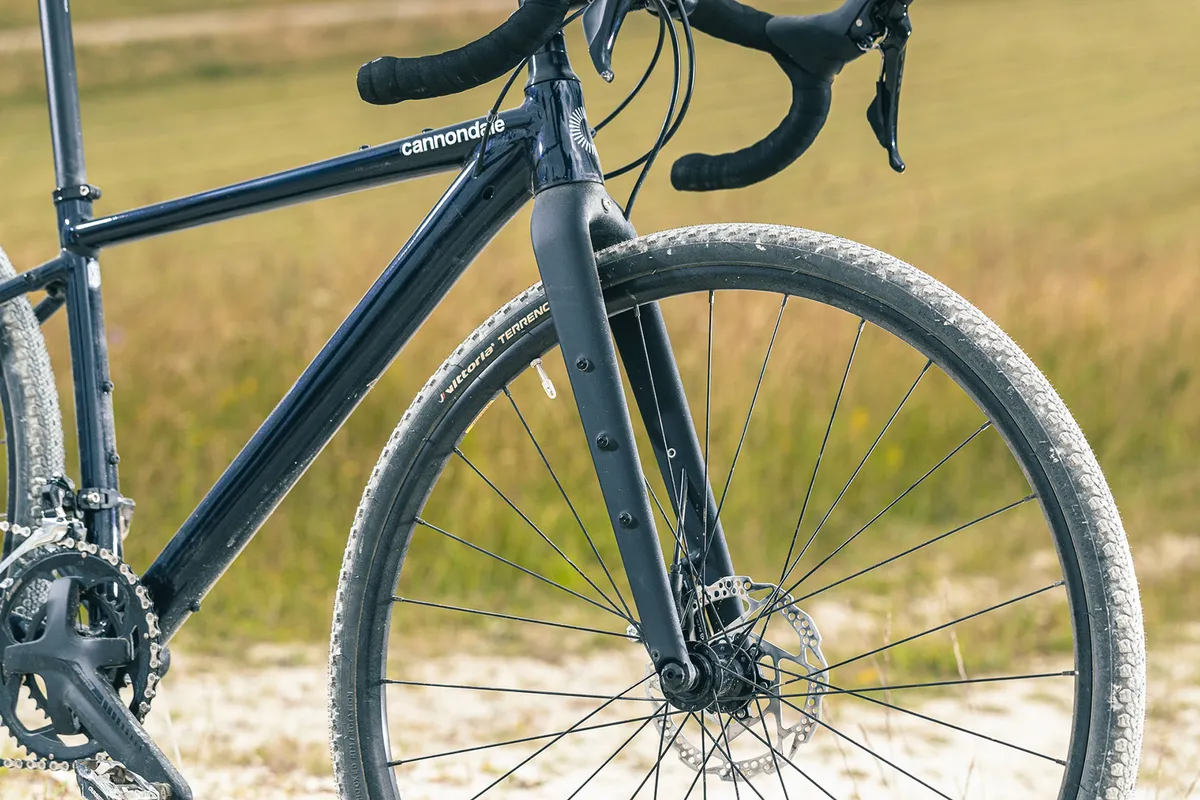
As in other riding disciplines, carbon is the money-no-object choice and the best option in terms of overall performance and weight.
If you want gravel wheels with aero credentials, the case for carbon is stronger. However, it comes at a huge price premium over aluminium (or “alloy”), which is arguably far better value for money, offering virtually all of the performance for as little as half the price, or less.
Carbon is nice to have, but absolutely not a necessity.
Axle and brake rotor compatibility
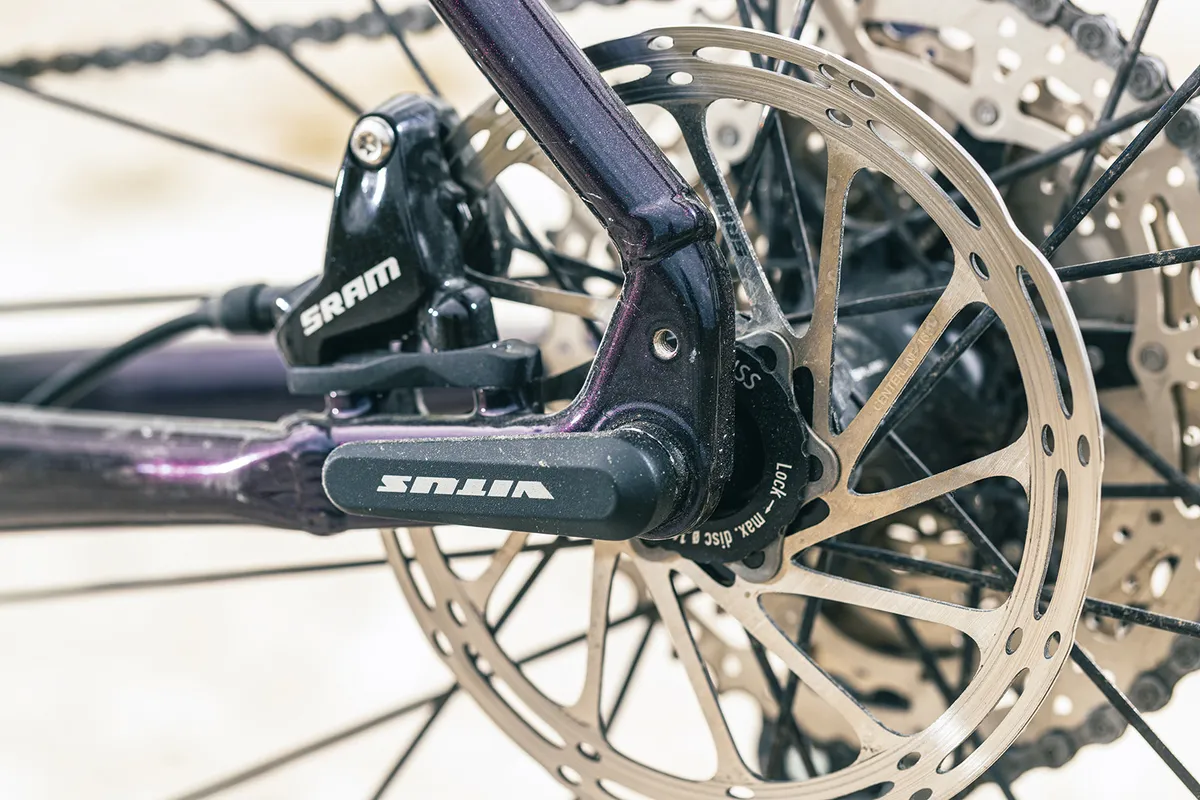
The gravel bike market has more or less settled on 12mm thru-axles front and rear as standard, but there are plenty of existing bikes out there with different setups, e.g. 15mm for the front, or old-school quick-release skewers.
When choosing a new gravel wheelset, make sure its hubs can be adapted to fit your frame and fork, and check whether the parts needed are included as standard or need to be bought separately.
Disc hubs are designed to accept either six-bolt or Center Lock disc brake rotors. If you’re switching from one to the other in the course of a wheel upgrade, you’ll either need to buy new rotors or, alternatively, there are adaptors to fit six-bolt rotors on Center Lock hubs, and vice versa.
Incidentally, we wouldn’t base our choice of wheels on the type of rotor used, but, for what it’s worth, Center Lock rotors are much quicker to install and remove.
Note that Center Lock rotors require a lockring, which may or may not be included with the wheels (or with the rotors themselves). Some use an internal cassette-style tool for installation, while others need an external bottom bracket (BB) type tool, of the kind used for Shimano BB cups.
Lockring threads are standardised, but we’ve encountered lockrings that don’t work on certain hubs because of the specific design, so check if there’s a recommended one for your wheels. Usually, that's because the hub body is too wide to fit an internal tool, in which case you'll need an external flange lockring and the requisite BB tool.
Other ways to upgrade your gravel bike
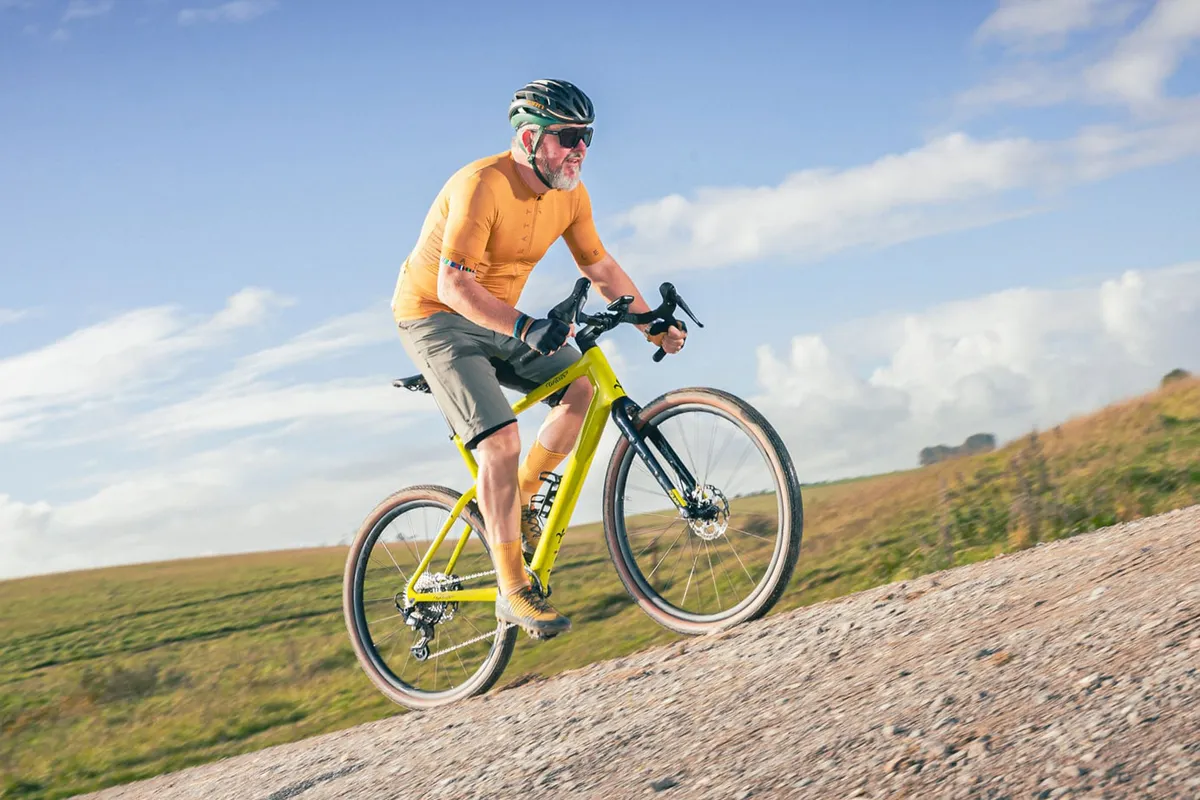
While a new set of wheels can greatly improve how your bike feels, there are plenty of other options to upgrade your gravel bike.
Check out our best gravel bike upgrades to see our top picks for getting the most out of your bike, as well as our best gravel riding routes to get inspiration for your next big adventure.




